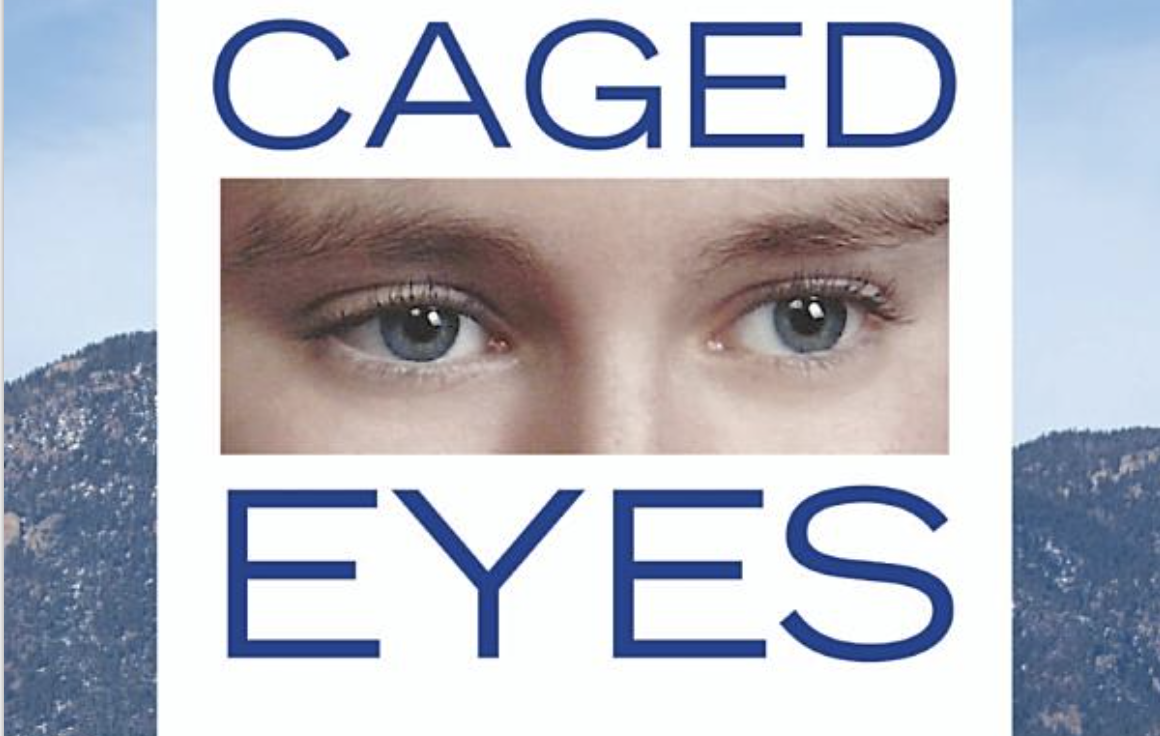People are standing up for change. Below are instances of the conversation being had in Pop Culture.
In Film
|
"Unbelievable", a Netflix series developed in partnership with RAINN depicts what it’s like for many survivors who choose to report sexual violence and the difficulty of receiving a rape kit and repeatedly describing an assault. Unbelievable focuses on how the first response a survivor hears after disclosing can encourage people to continue to pursue healing and find justice.
|
|
In Literature
|
Desperate to realize her childhood dream of being an astronaut, Lynn K. Hall was an enthusiastic young cadet. For Hall, the military offered an escape from her chaotic home—her erratic mother, absent biological father, and a man she called “dad” who sexually abused her. Resolute and committed to the Air Force Academy, Hall survived the ordeals of a first-year cadet. But she’s dismissed from the Academy when, after being raped by an upperclassman and contracting herpes, she is diagnosed with meningitis and left with chronic and debilitating pain.
An intimate account of grappling with shame and a misogynistic culture that condones rape and blames survivors, Caged Eyes is also a transformative story of how it’s possible to help yourself and others in the aftermath of a profound injustice. |
In Music
|
In the wake of the #MeToo movement, singer-songwriter FLETCHER has released a timely track titled “I Believe You.”
"Over the last few months, it seems every time I scroll through my Twitter feed, or walk into a studio session, I hear stories about another influential man who has abused his power," FLETCHER wrote. In line with the song’s supportive message, FLETCHER will be donating the proceeds from “I Believe You” to Time’s Up Legal Defense Fund. |
|
In Fashion
|
|
A video tour of a "What Were You Wearing" exhibit
|
On the Stage
|
In her Ted Talk, "How to Prevent Sexual Violence", Miranda Martone, Founder and CEO of the Sexual Violence Prevention Association (SVPA), addresses how society tells potential victims to protect themselves from sexual violence with self-defense classes, location-tracking apps, roofie-detecting products, and more. The responsibility of preventing sexual violence is currently placed on the most vulnerable, instead of those most likely to perpetrate. This is a form of victim blaming and does not prevent sexual violence. Instead, it ensures the perpetrator chooses a different victim. In order to prevent sexual violence, we must prevent perpetration by addressing the values, attitudes, and beliefs that lead to perpetration. That includes strategies to engage family, friends, and colleagues, as well as institutions such as universities, workplaces, and K-12 schools. We must also prevent perpetration by changing the depiction of rape culture in media and enacting effective legislation.
|
|
On Social Media
Movements and Non-Profits to Know
Amanda Nguyen founded Rise, which strives to help people get their own laws passed. She wrote a Sexual Survivors' Bill of Rights which was unanimously passed as a U.S. federal law.
In the Law
Senators introduce new Bipartisan Military Justice Improvement & Increasing Prevention Act >> The military justice reform bill would move the decision to prosecute from the survivor’s commander to independent, trained, professional military prosecutors. This has been a long awaited change for many SA activists. This is just one change among others that the Senators say will professionalize how the military prosecuted serious crimes.
Sexual Assault Survivors' Bill of Rights >> Amanda Nguyen is a rape survivor who authored and ushered the Sexual Assault Survivors’ Bill of Rights through Congress in 2016, after having to navigate the broken criminal justice system herself. This federal law is one of only 21 bills, in modern history, to have passed unanimously through both chambers of Congress.
The law ensures survivors of sexual assault the right to have a rape kit preserved for the length of the case's statute of limitations, to be notified of an evidence kit's destruction, and to be informed about results of forensic exams. The law’s intent is to encourage assault reporting by reducing the burden on survivors and removing disheartening obstacles to justice. The federal law served as a model for 15 other laws protecting sexual violence survivors throughout the nation (the goal is passage in all 50 states and international implementation of the concept in law). Amanda is the founder and CEO of Rise Now, an organization that empowers citizens to pen their own rights into existence (as she did) by providing training, legislative networks, access to professional services such as lawyers, accountants and lobbyists, office space, and seed funding. Amanda is a full-time employee of NASA and is hoping to follow her dream to be an astronaut.
Sexual Assault Survivors' Bill of Rights >> Amanda Nguyen is a rape survivor who authored and ushered the Sexual Assault Survivors’ Bill of Rights through Congress in 2016, after having to navigate the broken criminal justice system herself. This federal law is one of only 21 bills, in modern history, to have passed unanimously through both chambers of Congress.
The law ensures survivors of sexual assault the right to have a rape kit preserved for the length of the case's statute of limitations, to be notified of an evidence kit's destruction, and to be informed about results of forensic exams. The law’s intent is to encourage assault reporting by reducing the burden on survivors and removing disheartening obstacles to justice. The federal law served as a model for 15 other laws protecting sexual violence survivors throughout the nation (the goal is passage in all 50 states and international implementation of the concept in law). Amanda is the founder and CEO of Rise Now, an organization that empowers citizens to pen their own rights into existence (as she did) by providing training, legislative networks, access to professional services such as lawyers, accountants and lobbyists, office space, and seed funding. Amanda is a full-time employee of NASA and is hoping to follow her dream to be an astronaut.
In the News
May 5, 2021 >> Top US general surrenders on control of military's sexual assault policy. General Mark Milley says he is open to the idea of independent investigations looking into sexual assaults, crediting his junior enlisted force change of opinion on the matter.
May 3, 2021 >> Supreme Court declined to hear a lawsuit from a former West Point cadet who alleges she was raped on campus and that the academy failed to address its "pervasive and well-known culture of sexual violence."
Justice Clarence Thomas dissented from the decision not to take up the case, writing that the high court should reconsider a 1950 ruling that held that service members cannot bring such lawsuits against the government under the Federal Tort Claims Act (FTCA). The FTCA is a 1946 law that allows U.S. citizens to bring federal lawsuits against the government. However, the Supreme Court's 1950 decision in Feres v. US largely exempted active-duty service members from the right to file lawsuits. Thomas wrote that there is little sense in keeping the Feres decision intact and noted that under the precedent, Doe "could have brought these same claims had she been a civilian employed by West Point instead of a student. Perhaps the Court is hesitant to take up this issue at all because it would require fiddling with a 70-year-old precedent...But if the Fires doctrine is so wrong that we cannot figure out how to rein it in, then the better answer is to bid it farewell."
December 10, 2020 >> "Supreme Court overturns top military court, rules that rape cases before 2006 can be prosecuted" -- Caroline Kelly and Catherine Valentine write for CNN.
December 8, 2020 >> "Fourteen U.S. Army leaders fired or suspended at Fort Hood" -- Emma Platoff and Shawn Mulcahy write for the Texas Tribune about Fort Hood and the role of leadership and legislation in the prevention and response to sexual harassment.
May 3, 2021 >> Supreme Court declined to hear a lawsuit from a former West Point cadet who alleges she was raped on campus and that the academy failed to address its "pervasive and well-known culture of sexual violence."
Justice Clarence Thomas dissented from the decision not to take up the case, writing that the high court should reconsider a 1950 ruling that held that service members cannot bring such lawsuits against the government under the Federal Tort Claims Act (FTCA). The FTCA is a 1946 law that allows U.S. citizens to bring federal lawsuits against the government. However, the Supreme Court's 1950 decision in Feres v. US largely exempted active-duty service members from the right to file lawsuits. Thomas wrote that there is little sense in keeping the Feres decision intact and noted that under the precedent, Doe "could have brought these same claims had she been a civilian employed by West Point instead of a student. Perhaps the Court is hesitant to take up this issue at all because it would require fiddling with a 70-year-old precedent...But if the Fires doctrine is so wrong that we cannot figure out how to rein it in, then the better answer is to bid it farewell."
December 10, 2020 >> "Supreme Court overturns top military court, rules that rape cases before 2006 can be prosecuted" -- Caroline Kelly and Catherine Valentine write for CNN.
December 8, 2020 >> "Fourteen U.S. Army leaders fired or suspended at Fort Hood" -- Emma Platoff and Shawn Mulcahy write for the Texas Tribune about Fort Hood and the role of leadership and legislation in the prevention and response to sexual harassment.
Is there a song, painting, blog, or website that inspires you? Let us know about it using the form on the homepage and we may include it.





